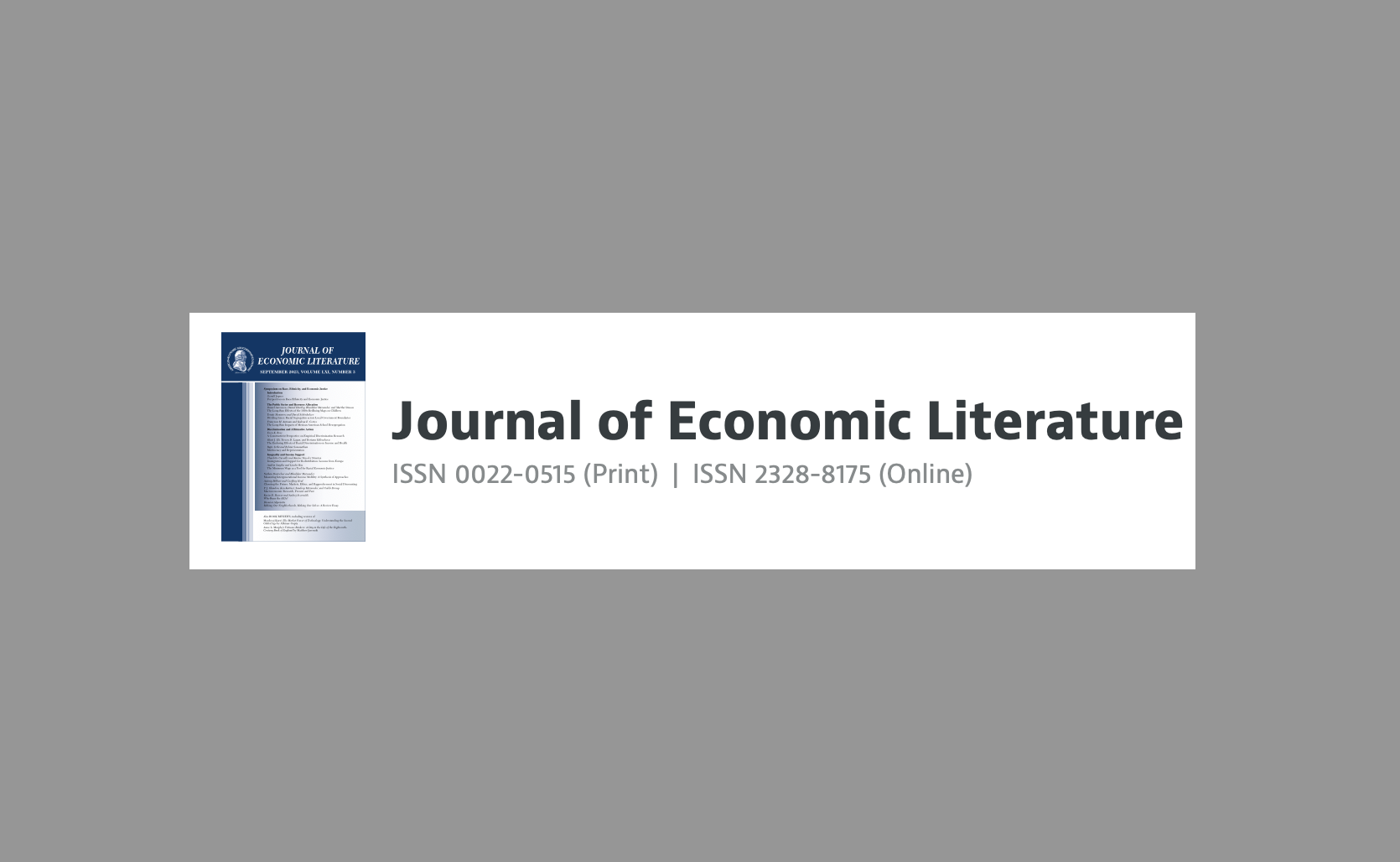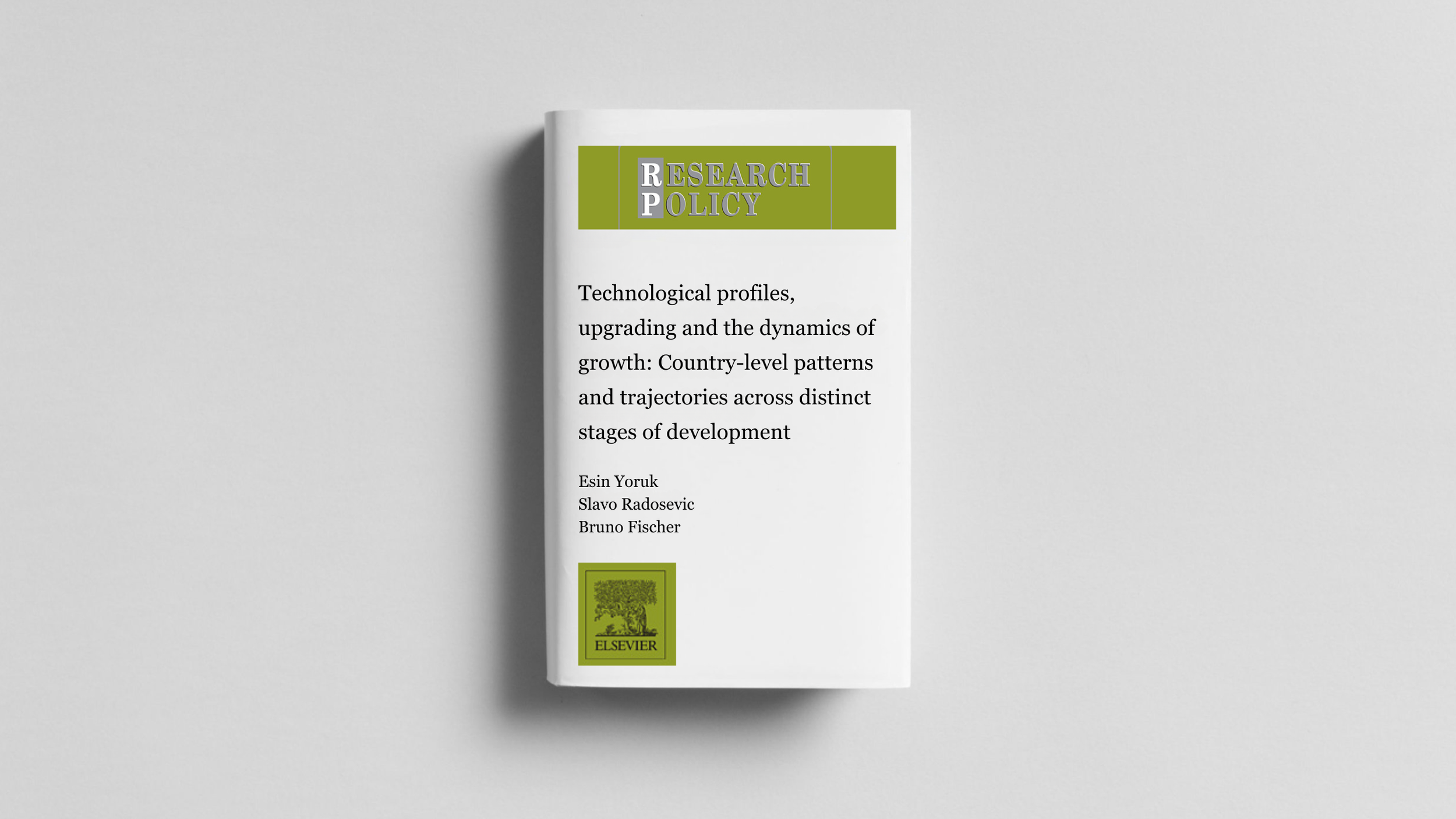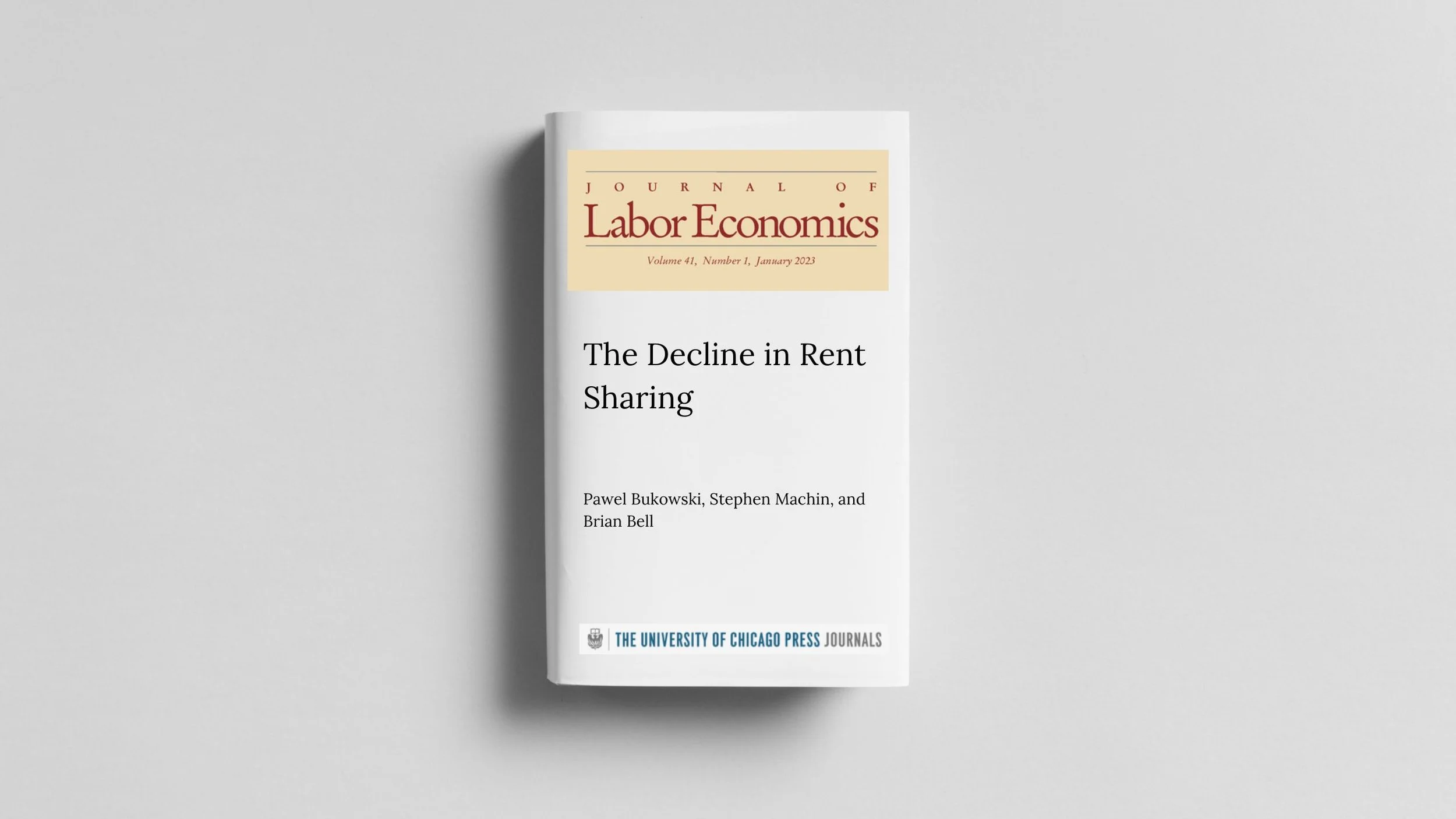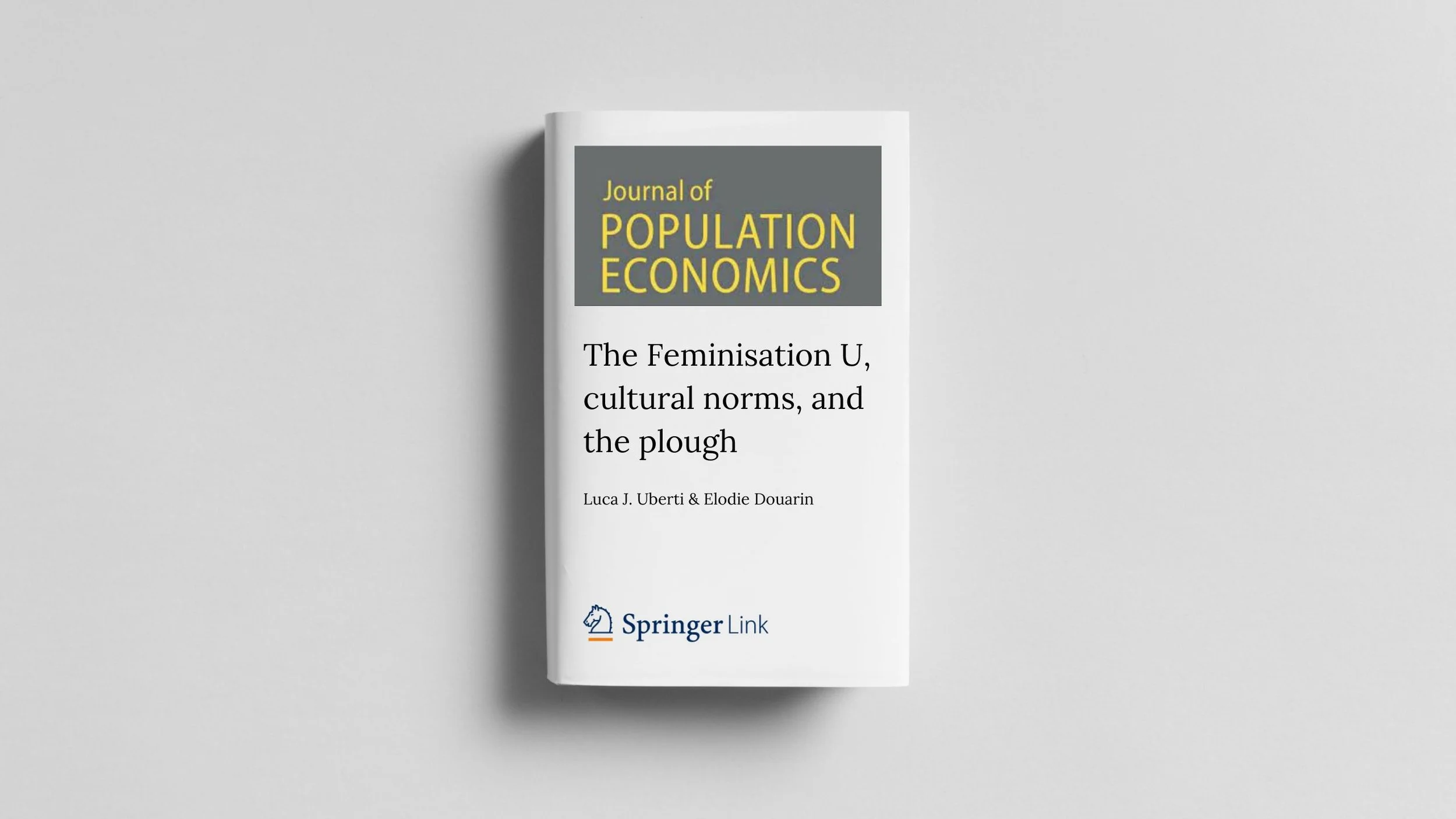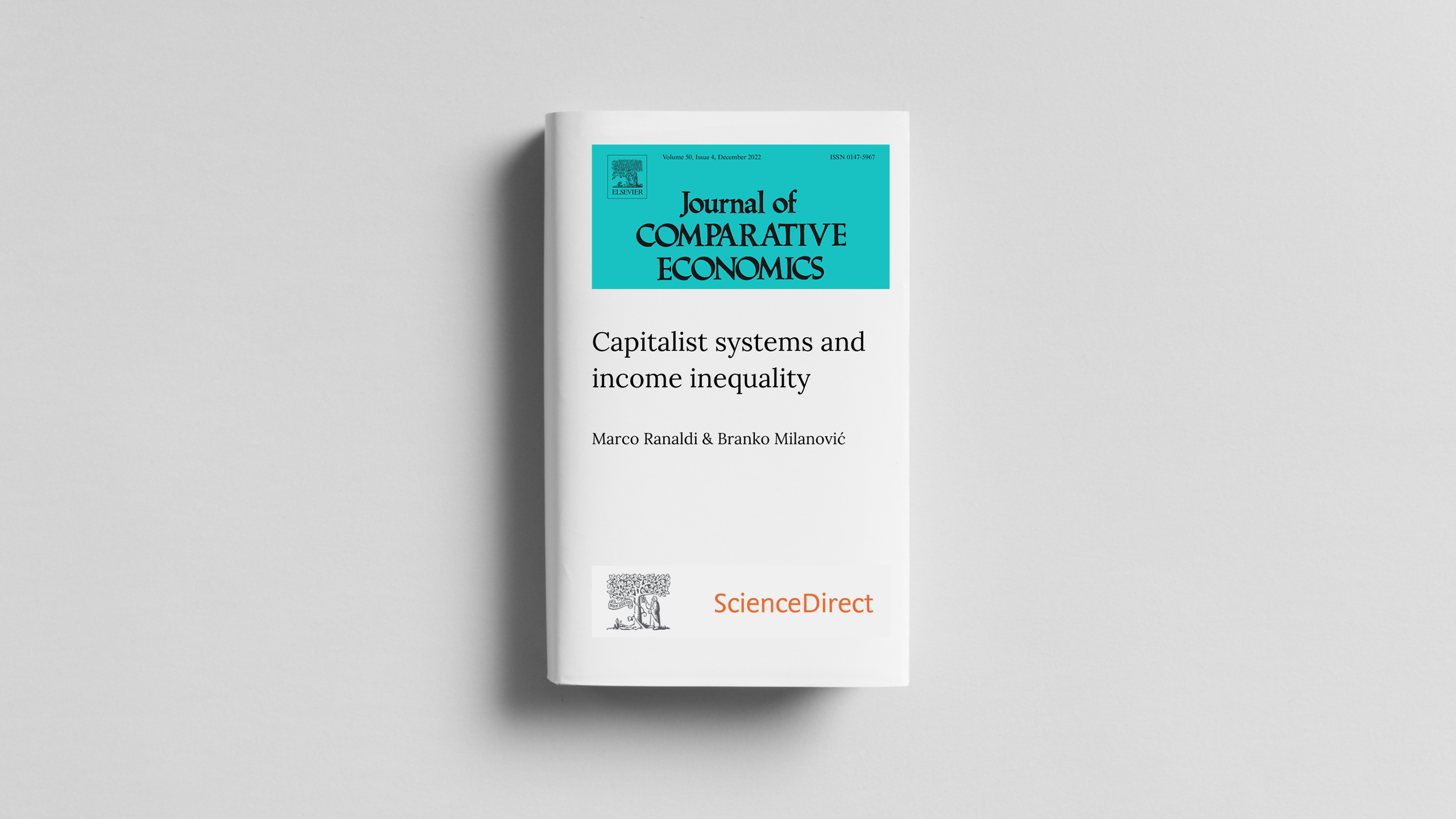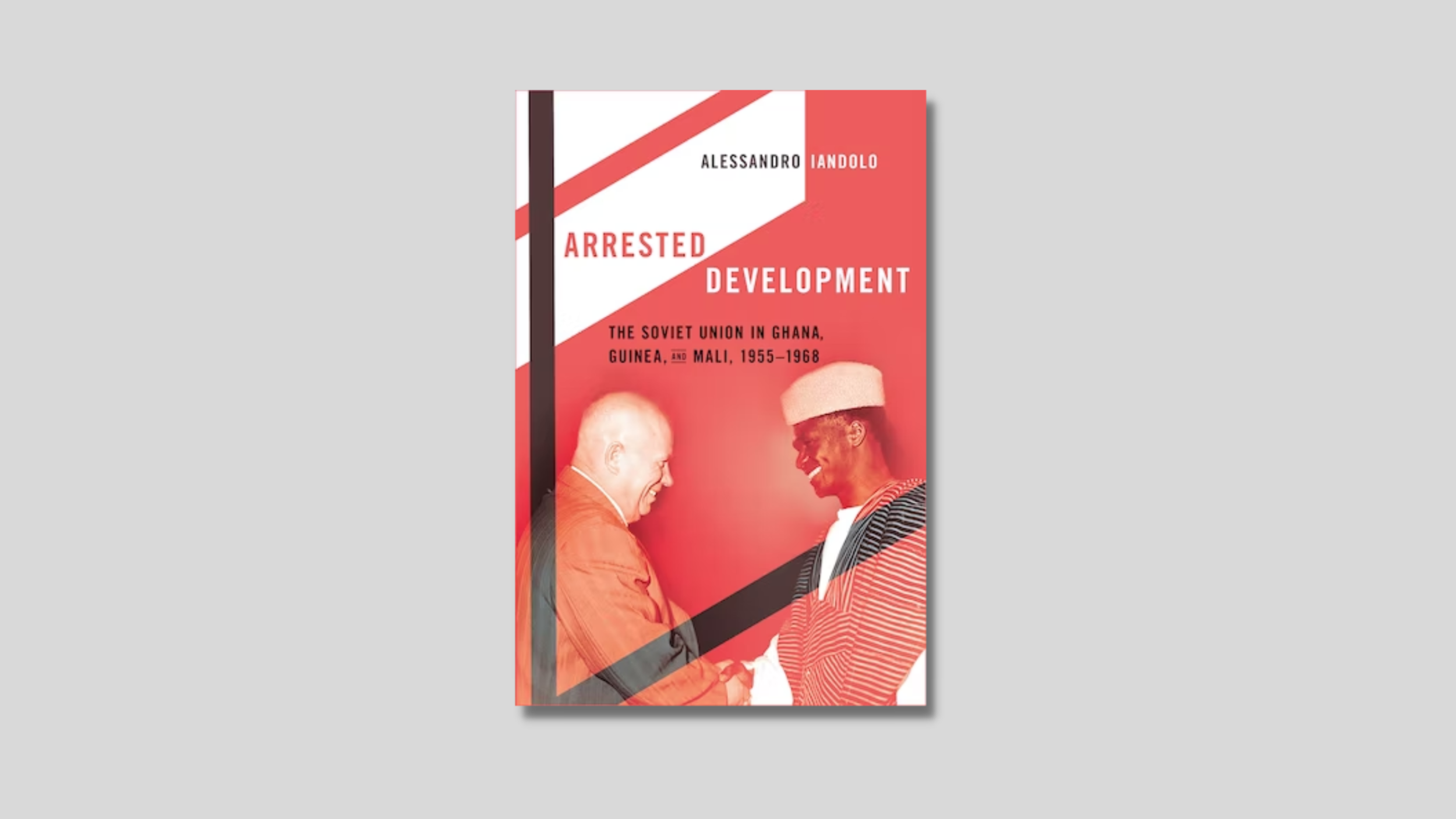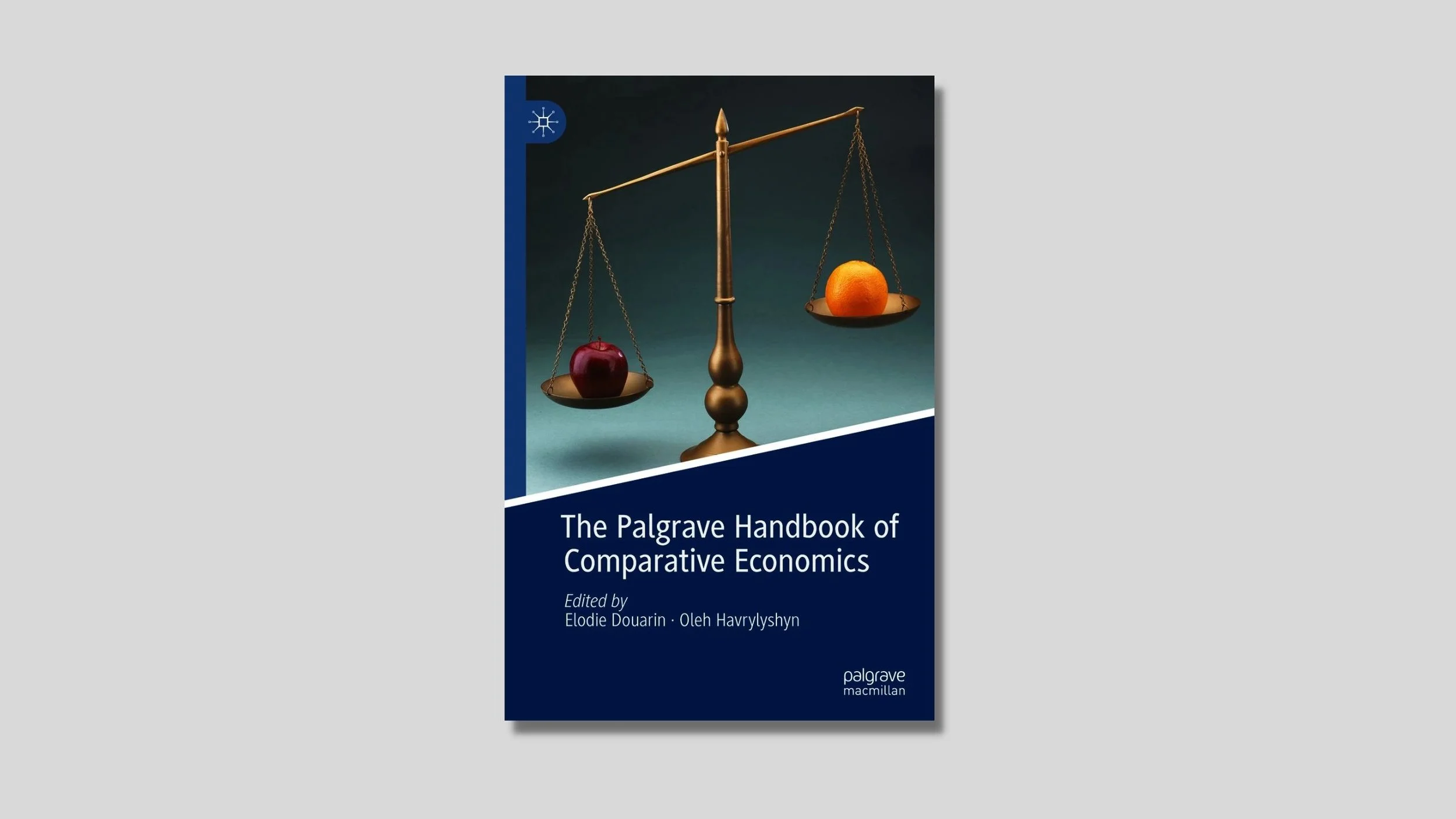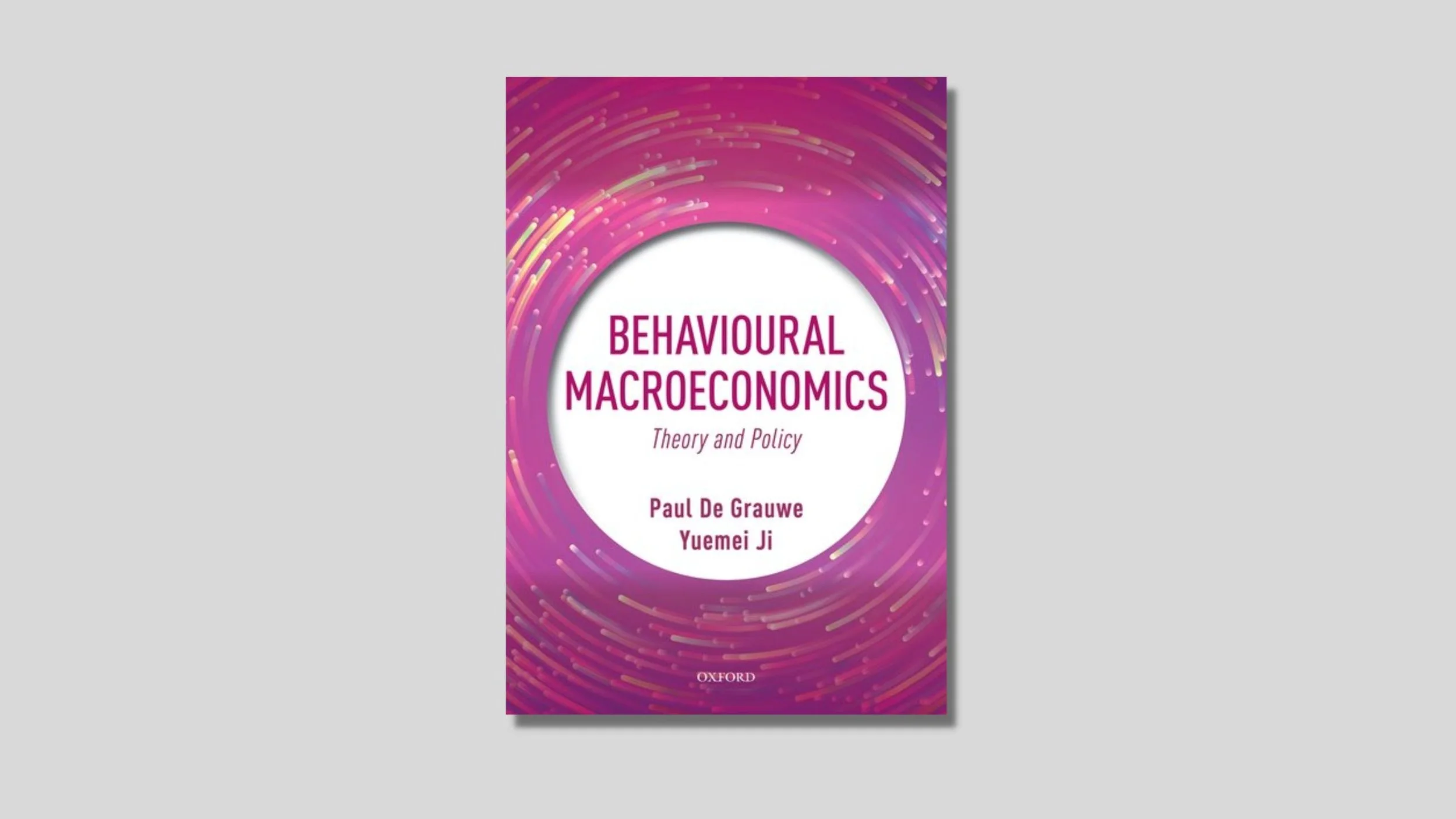Our Research
-
![]()
Tracing productivity growth channels in the UK
Daniel Garcia-Macia, Julia Korosteleva
What drove the UK productivity slowdown post-Global Financial Crisis, and how is the post-Covid recovery expected to differ? This paper traces the sources of TFP growth in the UK over the last two decades through the lens of a structural model of innovation, using registry data on the universe of firms. The dominant innovation source in the pre-GFC decade were improvements by incumbent firms on their own products, whereas creation of new varieties by entrants took a leading role post-GFC. In the Covid recovery, survey data (as of July 2021) suggested that creative destruction (i.e., innovation replacing other firms' products) was expected to gain importance. Innovation remains key for the UK economy to secure sustainable productivity growth. Once the recovery is underway, growth policies should prioritize labor and capital reallocation across firms, in addition to R&D support and human capital investment.
-
![]()
How to conduct monetary policies. The ECB in the past, present and future
Paul De Grauwe, Yuemei Ji
We study the evolving operating procedures used by the ECB since its creation. During the period up to 2015, bank reserves were scarce and the ECB, like other central banks, used a corridor system in which the money market rate could fluctuate within the bounds set by the lending and the deposit rates. With the start of Quantitative Easing (QE) the operating procedure evolved into a regime of reserve abundance. This regime has become problematic since the inflation surge forced the central banks to raise the policy rate. The result has been a massive transfer of central banks’ profits (and more) to the banks. We propose a two-tier system of reserve requirements that would only remunerate the reserves in excess of the minimum required. This would drastically reduce the giveaways to banks, allow the central banks to maintain their current operating procedures and make monetary policies more effective in fighting inflation.
-
![]()
Structural Reforms and Economic Performance: The Experience of Advanced Economies
Nauro F. Campos, Paul De Grauwe, Yuemei Ji
This paper provides a comprehensive assessment of the theoretical and empirical literature on structural reforms in advanced economies. Structural reforms matter because they entail profound and systematic changes that affect economic welfare, productivity, growth, unemployment, macroeconomic stability, and income inequality. Here we focus on structural reforms in product, labor, and financial markets. After putting forward a set of stylized facts, we take stock of the literature on each of these three key structural reforms, and then assess their business cycle and political economy implications. We underscore various gaps in the literature and articulate a future research agenda that highlights four main areas: measurement, interactions among reforms, political economy considerations, and the timing of the implementation of reforms.
-
![]()
Economic uncertainty and natural language processing; The case of Russia
Wojciech Charemza, Svetlana Makarova, Krzysztof Rybiński
The paper proposes a method of constructing text-based country-specific measures for economic policy uncertainty. To avoid problems of translation and human validation costs, we apply natural language processing and sentiment analysis to construct such measures for Russia. We compare our measure with that developed earlier using direct translations from English and human validation. In this comparison, our measure does equally well at evaluating the uncertainty related to key events that affected Russia between 1994 and 2018 and performs better at detecting the effects of uncertainty in Russia’s industrial production.
-
![]()
Individualism, universalism and climate change
Elodie Douarin, Tim Hinks
Is ‘individualism’ pure selfishness? The climate change literature often assumes so. However, individualism can be seen as capturing values aligned with self-determination and self-achievement but also universalism. Indeed, cultural psychology recognises individualism as reflecting both personal agency and one's embeddedness, not in narrowly defined in-groups, but in society broadly. Through this lens, individualism can be consistent with adopting pro-social behaviours, including climate-friendly behaviours. But the under-exploration of the concept means empirical evidence is limited. Using cross-country, cross-sectional data we find that individualistic values are associated with an increased willingness to take individual-level actions against climate change. Individualism is also not associated with less support for additional taxes levied to fight climate change, and those willing to take more individual level actions against climate change are also more supportive of additional climate change taxes. Overall, our results confirm that individualism can be associated with taking actions for the greater good.
-
![]()
Global Perspective on Italian Capitalism
Marco Ranaldi
This paper investigates the relationship between national and global distributions of capital and labor income in Italy from 1989 to 2020. By combining data from the Global Capital and Labor (GCL) Database and the Italian Survey of Household Income and Wealth (SHIW), it presents five principal findings. First, between 1989 and 2016, Italians consistently declined in their global income rankings based on both capital and labor income. Second, during this period, individuals in the lower income deciles across all regions (North, Center, and South of Italy) experienced more significant declines in both types of income. Third, these trends reversed from 2016 to 2020. Fourth, labor income is a more crucial determinant of global income status for Italians compared to capital income. Fifth, transfer income can no longer elevate Italians at the bottom of the labor income distribution to global middle-class standards, unlike in the past.
-
![]()
Angry Men and Civic Women? Gendered Effects of Conflict on Political Participation in Kosovo
Julie Litchfield, Elodie Douarin, Fatlinda Gashi
This article studies the effect of the 1998–99 Kosovo war on current political participation, disaggregating the analysis by the type of conflict experience – namely death or injury to self or a family member or displacement – and by gender. The results show that experience of conflict is associated with more political participation but with important distinctions between genders by the form of participation and the type of conflict experience. Displacement is associated with more voting among women, but not among men, and with more demonstrating by men but weaker or no effects for women; death and injury are associated with higher political party membership for men but not women. While experiences of conflict increase levels of political participation, the form that this takes varies by gender, with effects on private, civic, action among women, and effects on direct, public, and more emotionally heightened engagement among men.
-
![]()
The causal effect of a health treatment on beliefs, stated preferences and memories
Alberto Prati, Charlotte Saucet
The paper estimates the causal effect of a health treatment on patients’ beliefs, preferences and memories about the treatment. It exploits a natural experiment which occurred in the United Kingdom during the COVID-19 vaccination campaign. We surveyed a sample of UK residents about their beliefs on the different COVID-19 vaccines before and after receiving their jab. At the aggregated level, the results show that random assignment to a health treatment predicts a polarization of opinions about its quality. At the individual level, these findings provide evidence in line with the predictions of motivated beliefs and over-inference from weak signals in a real-world health setting.
-
![]()
Determinants of Income Composition Inequality
Bilyana Petrova, Marco Ranaldi
This article explores the drivers of income composition inequality (ICI). Contrary to recent studies, which show that the composition of government has ceased to shape redistribution and income inequality dynamics, this article posits that left-wing parties are associated with lower income composition inequality. We test this expectation with data from thirty European countries between 2003 and 2017. Our results suggest that the polarization between capital and labor income holders declines under left-wing governments. We establish that this is mainly because left-wing parties seek to broaden access to capital income.
-
![Paper Cover]()
Technological profiles, upgrading and the dynamics of growth: Country-level patterns and trajectories across distinct stages of development
Esin Yoruk, Slavo Radosevic, and Bruno Fischer
We investigate the dynamic and qualitative nature of technological change in 96 countries between 1980 and 2021 from a structuralist technology upgrading perspective. We find a significant association between growth dynamics and country-level specific technology clusters that is driven by the ongoing ICT-based technological revolution and enabling nanotechnology, biotechnology and automation tools.
-
![Front Cover for paper]()
The Ripple Effect of Sanctions: Exploring the Impact on Global Value Chains Using a Gravity Model
Randolph Luca Bruno, Maria Cipollina, and Silvia Dal Bianco
The article explores and quantifies the intertwined relationship between trade sanctions, Global Value Chains (GVC) participation and revealed comparative advantage (RCA). It presents an original theoretical framework exploring the interaction between sanctions, RCA, and GVC.
-
![Front Cover for paper]()
Spatial wage inequality in North America and Western Europe: changes between and within local labour markets 1975-2019
L. Bauluz, P. Bukowski, M. Fransham, A. Lee, M. López Forero, F. Novokmet, S. Breau, N. Lee, C. Malgouyres, M. Schularick, G. Verdugo
The rise of economic inequalities in advanced economies has been often linked with the growth of spatial inequalities within countries, yet there is limited comparative research that studies the relationship between national and subnational economic inequality. This paper presents the first systematic attempt to create internationally comparable evidence showing how different countries perform in terms of geographic wage inequalities.
-
![Front Cover of Paper]()
The Well-Being Cost of Inflation Inequalities
Alberto Prati
In terms of well-being, how costly is inflation? To answer this question, empirical evaluations have typically studied average inflation rates at the national level, thus disregarding the role of inflation inequalities within a country. In this article, we relax the assumptions that heterogeneous consumers face homogeneous inflation rates, and study the correlation between price changes and self-reported satisfaction with living standards.
-
![Front Cover for paper]()
Heterogeneity in macroeconomics: the compositional inequality perspective
Marco Ranaldi and Elisa Palagi
This work presents a framework to jointly study individuals’ heterogeneity in terms of their capital and labour endowments (endowment heterogeneity) and of their saving and consumption behaviours (behavioural heterogeneity), from an empirical perspective. By adopting a newly developed synthetic measure of compositional inequality, this work classifies more than 20 economies across over two decades on the basis of their heterogeneity characteristics.
-
![Front Cover for paper]()
The Decline in Rent Sharing
Pawel Bukowski, Stephen Machin, and Brian Bell
The evolution of rent sharing is studied. Based on a panel of the top 300 publicly quoted British companies over thirty-five years, and using excess stock market returns to patenting activity as an instrument for economic rents, the paper reports evidence of a significant fall over time in the pass-through from rents to wages. It confirms that wages do respond to firm-level shocks and to economic rents, but by significantly less after 2000 that they did during the 1980s and 1990s. The evidence of decline is a robust finding, corroborated with alternative instruments and industry-level analysis for the US and EU.
-
![Front Cover for paper]()
Fractal Theory of Income Distribution
Marco Ranaldi
This paper uses fractal mathematics to describe the distribution of income among individuals. It shows the existence of a stochastic fractal relationship between a country’s output and income inequality: the higher the level of income inequality, the lower the country’s output, all else being equal. (Stone Center on Socio-Economic Inequality Working Paper)
-
![Front cover for research paper Trust and Monetary Policy]()
Trust and Monetary Policy
Paul De Grauwe & Yuemei Ji
We analyze how trust affects the transmission of negative demand and supply shocks. We define trust to have two dimensions: there is trust in the central bank’s inflation target and trust in the future of economic activity. We use a behavioural macroeconomic model that is characterized by the fact that individuals lack the cognitive ability to understand the underlying model and to know the distribution of the shocks that hit the economy. We find…
-
![Picture of publishing journal]()
The Political U: New evidence on democracy and Income
Nauro F. Campos, Fabrizio Coricelli & Marco Frigerio
This paper throws new light on the relationship between income and democracy. Using data for 162 countries over 1960-2018, we show that the causal relationship between political and economic development is U-shaped: "intermediate" political regimes significantly lead to inferior economic performance vis-à-vis both "democracies" and "autocracies."
-
![Picture of publishing journal]()
Between communism and capitalism: long-term inequality in Poland, 1892–2015
Paweł Bukowski & Filip Novokmet
We construct the first consistent series on the long-term distribution of income in Poland by combining tax, household survey and national accounts data. We document a U-shaped evolution of inequalities from the end of the nineteenth century until today: (1) inequality was high before WWII; (2) abruptly fell after the introduction of communism in 1947 and stagnated at low levels during the whole communist period; (3) experienced a sharp rise with the return to capitalism in 1989.
-
![Picture showing the publication journal]()
The Feminisation U, cultural norms, and the plough
Luca J. Uberti & Elodie Douarin
The Feminisation U describes the tendency of female labour force participation (FLFP) to first decline and then rise in the process of economic development. While the Feminisation U is often presented as a ‘stylised fact’ of development, empirical support for it is mixed. Here, we show that cultural norms inherited from ancestral plough use exert a moderating influence on the shape of the Feminisation U. Specifically, we find a significantly U-shaped path of FLFP only in countries whose ancestors employed a plough-based agricultural technology.
-
![Image of journal]()
Capitalist systems and income inequality
Marco Ranaldi & Branko Milanović
The paper investigates the relationship between compositional inequality (how the shares of capital and labor income vary along income distribution) and inter-personal income inequality. Using a new methodology and data from 47 countries covering the period 1995–2018, we show that higher compositional inequality is associated with higher inter-personal inequality.
-
![Image of research paper]()
Sectoral digital capabilities and complementarities in shaping young firms’ growth
Randolph Luca Bruno, Julia Korostelevea & Slavo Radosevic
We explore how digitalization impacts young firms’ growth. A longitudinal panel analysis of the EU’s new ventures during 2010–2018 reveals that digital sectoral capabilities affect young firms’ growth autonomously and via interaction with other sectoral capabilities.
Our Books
-
![Image of book Arrested Development]()
Arrested Development: The Soviet Union in Ghana, Guinea, and Mali, 1955–1968
Alessandro Iandolo
Arrested Development examines the USSR's involvement in West Africa during the 1950s and 1960s as aid donor, trade partner, and political inspiration for the first post-independence governments in Ghana, Guinea, and Mali.
Buoyed by solid economic performance in the 1950s, the USSR opened itself up to the world and launched a series of programs aimed at supporting the search for economic development in newly independent countries in Africa and Asia. These countries, emerging from decades of colonial domination, looked at the USSR as an example to strengthen political and economic independence. Based on extensive research in Russian and West African archives, Alessandro Iandolo explores the ideas that guided Soviet engagement in West Africa, investigates the projects that the USSR sponsored "on the ground," and analyzes their implementation and legacy.
-
![Front Cover of The Palgrave Handbook of Comparative Economics]()
The Palgrave Handbook of Comparative Economics
Elodie Dourin
This book aims to define comparative economics and to illustrate the breadth and depth of its contribution. It starts with an historiography of the field, arguing for a continued legacy of comparative economic systems, which compared socialism and capitalism, a field which some argued should have been replaced by institutional economics after the fall of the Berlin Wall. The process of transition to market capitalism is reviewed, and itself exemplifies a new combination of comparative analysis with a focus on institutional development. Going beyond, chapters broadening the application of comparative analysis and applying it to new issues and approaches, including the role and definition of institutions, subjective wellbeing, inequality, populism, demography, and novel methodologies. Overall, comparative economics has evolved in the past 30 years, and remains a powerful approach for analyzing important issues.
-
![Front cover of Behavioural Macroeconomics Theory and Policy]()
Behavioural Macroeconomics: Theory and Policy
Paul De Grauwe and Yuemei Ji
Modern macroeconomics has been based on the paradigm of the rational individual capable of understanding the complexity of the world. This has created a very shallow theory of the business cycle in which nothing happens in the macroeconomy unless shocks occur from outside. Behavioural Macroeconomics: Theory and Policy uses a different paradigm. It assumes that individual agents experience cognitive limitations preventing them from having rational expectations. Instead, these individuals use simple rules of behaviour.
Behavioural Macroeconomics: Theory and Policy develops a new paradigm for macroeconomic analysis. It demonstrates an interdisciplinary method stressing the behavioural dimensions to macroeconomics., and creates new implications for policymakers, central banks, and governments.
-
![Front Cover for Elements in the Economics of European Integration]()
Elements in the Economics of European Integration
Series editor Nauro F. Campos
This series will provide authoritative and up-to-date reviews of core topics and recent developments in the field. The editor is particularly interested in contributions addressing structural, policy and political economy issues.
-
![]()
Schooling under control: The origins of public education in Imperial Austria 1769-1869
Tomáš Cvrček
New statistical evidence reveals that Empress Maria Theresa's famed school reform of 1774 - regarded as one of her signature achievements - was far less successful in bringing education to the masses than previously thought. And that the main reason for this failure was the design of the policy itself.
Our Resources
-

Journal of Comparative Economic Studies
Ed. Nauro Campos
CNET is home to the Journal of Comparative Economic Studies, which aims to publish papers that address several objectives: that provide original political economy analysis from a comparative perspective, that are an accessible source for state-of-the-art comparative economics thinking, that encourage cross-fertilization of ideas, that debate directions for future research in comparative economics, and that can provide materials and insights that are relevant for teaching, public policy debate and the media.
-

Czoernig.com
Curator and editor: Tomáš Cvrček
Czoernig is an online database and data exchange hub containing historical demographic, economic and other data on Central and Eastern Europe.
Our Impact
-
![]()
New evidence on spatial wage inequality across North America and Western Europe
L. Bauluz , P. Bukowski, M. Fransham, A. Lee, N. Lee, M. López Forero, F. Novokmet, M. Schularick
This column presents evidence showing that, contrary to the popular narrative, North America and Europe have followed different patterns on spatial inequality, with inequality actually falling in the European countries studied. It highlights that spatial inequality in wages is not a major contributor to national income inequality.
Image: Vox EU
-
![]()
Income composition inequality
Marco Ranaldi
Compositional inequality describes differences between rich and poor in terms of the labour share and capital share of their income. When compositional inequality is high, the rich and the poor are earning from different sources – capital and labour income respectively. When, by contrast, compositional inequality is minimal, the rich and poor are earning income from capital and labour in the same proportion.
-
![]()
Monetary policies that do not subsidise banks
Paul De Grauwe & Yuemei Ji
Central banks pay interest on commercial banks’ holdings of cash reserves at the central bank. Thus, recent rate increases imply larger interest payments to commercial banks and loss of revenue for national governments. This column argues that a better policy would be to combine sustained sales of government bonds with higher minimum reserve requirements. This would avoid transferring central bank profits to commercial banks, which essentially amounts to a subsidy paid by the central bank.
Image: Vox EU
-
![]()
The environmental burden of the international job market for economists
Alberto Prati, Morgan Raux & Olivier Chanel
Each year, the ‘international job market for economists’ involves over 1,000 junior candidates and several hundred recruiters from all over the world meeting for short pre-screening interviews at annual congresses in Europe and in the US, thus generating momentous and avoidable global hypermobility. This column argues it is time to reassess this unsustainable recruitment system and estimates the carbon footprint of alternative systems.
Image: Vox EU
-
![]()
The two disjointed faces of R&D and the productivity gap in Europe
Randolph Bruno
Randolph Bruno discusses the determinants of productivity gaps within the European Union in computing, chemicals and basic metals and food manufacturing - four sectors that vary in terms of intensity of sectoral R&D.



